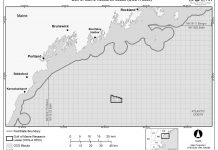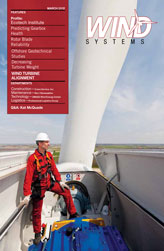The contract is finally signed, and everyone lets out a sigh of relief. Six months of hard negotiations hammered home an agreement. The only problem now is that we only have two months allotted time to start the project ramp up, when even in ideal situations it takes four months. Hey, we got the contract, we can do it! Even though the contract should have been signed three months ago. Sound familiar? For me it’s an example of “been there, done that, and even got the t-shirt.” I call this the neglected cost of indecision. Every plan, schedule, contract, and project is a decision. It happens on all sizes of projects during the planning and execution. Sometimes the cost is little, but oftentimes it is not. In the above case, the client paid a premium for acquiring materials.
First let me define what I mean by indecision. I am not advocating quick or ill-prepared decisions. My description of indecision is taking too much time in an effort to be too perfect when deciding something. Symptoms are paralysis through anaylsis, looking for every bit of data no matter how relevant, multiple layers of approval, and an over the fence approach method. Let me explain.
This is my favorite: paralysis through analysis. This phenomenon is often indicated by forming a committee to study the issue, or we need more data to absolutely make us comfortable with the decision. I cannot begin to relate how many times in my experience in supply chain management and logistics have I witnessed opportunities die because of this. One of my favorite sayings is “perfection is often the enemy of the good.” Especially where good gains more than doing nothing.
Looking for more data can also lead to indecision. Now I am not saying that data and preparation are not important. This is often the key to the right decision. What I am saying is that having too much data, or not the right data, is as bad as not having enough. Searching and waiting for every piece of conceivable information often allows an opportunity to slip through your fingers. I experienced projects getting delayed or even canceled because of waiting on one last piece of information that really did not affect the project. My answer to this problem is “the right information, in the right amount, at the right time.”
Can there be too many chefs in the kitchen, as the saying goes? Yes, in some cases. Having too many layers of approval can add time to making the decision; time that could cost money downstream. Drive down the decisions to the proper level. The VP of supply chain should not be making decision that a regional logistics manager should make. I would suggest centralized data and decentralize decision making.
And the last is the “over the fence” method of making a decision. This one is really prevalent in large organizations. It is when one department deals with an issue related to the ultimate decision and throws it over the fence to another department to deal with it, and so forth. By the way, this can also result in what I call “the ping pong affect,” going back and forth. This decision making process can be viewed as a series of smaller decisions without regard to the overall decision. It is a suboptimization of the whole process. A far better way is collaboration between departments during the process. Have each interest participate together to provide relevant input. You’d be surprised how this can shorten the amount of time to make a plan, contract, or a project.
An example of the cost of indecision happened to me when dealing with a large Chinese transportation project a few years back. Our customer just could not decide on a start time for a project and kept refining their decision based on every bit of last minute data they could get their hands on. Opportunities for lowering their transportation cost kept passing them buy. At the last moment they decided to go with their earlier start date, which by the way was their original one. The consequences were much higher cargo rates due to not locking in vessel charters. The cost was so much higher that if they would have made an earlier decision, even with a later start date and storage of the cargo at project site, it would have been far less expensive.
I do believe in thorough planning and preparation. It is vital to a successful project. I subscribe to what I call “incremental justification.” If 20 percent of my effort gets me 80 percent of the benefits, is it worth the other 80 percent to gain the last 20 percent? Get the right information, the right amount, and make the decision in a timely manner. That’s how you leverage your opportunities. And by the way, I also subscribe to this saying, which is attributed to General Patton during World War II. To paraphrase: “Give me a less than perfect plan aggressively executed over the perfect plan that is poorly executed, and I will win every time.”




































